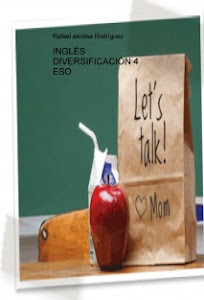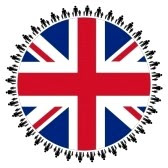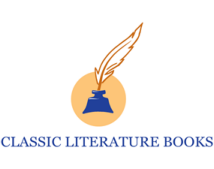That's curious!
THE STORY BEHIND THE WORDS
THE STORY BEHIND THE WORDS
Biscuit

This word, which denominates a small thin dry cake made for one person, has its origins around 1400. It comes from the Old French word 'bescuit', which derives from the Latin words 'bis' (meaning twice) and 'coctus' (meaning cooked).
Christmas
The word Christmas comes from the Old English words "Cristes maesse", which mean "the mass of Christ". That phrase was first used in 1038. The first festival recorded on December 25th was held by Romans in the fourth century. The celebration was later spread to other societies and cultures, giving origin to modern Christmas.
The word Christmas comes from the Old English words "Cristes maesse", which mean "the mass of Christ". That phrase was first used in 1038. The first festival recorded on December 25th was held by Romans in the fourth century. The celebration was later spread to other societies and cultures, giving origin to modern Christmas.
Deadline
This word means the time when something should be already finished. It first appeared in 1920 and it comes from the newspaper jargon. After the time indicated as deadline, there's no point in continuing writing a story because it's considered moot or dead as it wouldn't be published. The word was also used in printing, meaning a line that marked the limit of a page, anything outside it wouldn't be printed.
This word means the time when something should be already finished. It first appeared in 1920 and it comes from the newspaper jargon. After the time indicated as deadline, there's no point in continuing writing a story because it's considered moot or dead as it wouldn't be published. The word was also used in printing, meaning a line that marked the limit of a page, anything outside it wouldn't be printed.
Gossip
This word derives from the Old English term "godsibb", which meant "godfather" ("sibb" meant "kin"). The term was then started to be used to refer to any women friends who attended the mother at the time of the birth of her child. But in the late 16th century, gossip became to be used to describe the iddle chatter with friends or acquaintances, maybe like the one those women used to have.
This word derives from the Old English term "godsibb", which meant "godfather" ("sibb" meant "kin"). The term was then started to be used to refer to any women friends who attended the mother at the time of the birth of her child. But in the late 16th century, gossip became to be used to describe the iddle chatter with friends or acquaintances, maybe like the one those women used to have.
Honeymoon
This word first appeared in 1546 according to the Webster dictionary. Honey is a clear reference to the sweetest stage of a marriage, free of the usual problems that later appear in every marriage. The moon is not a reference to the lunar cycle but to the period of that sweetness. It's very probable that it will fade, just in the same way as the moon wanes and becomes smaller.
This word first appeared in 1546 according to the Webster dictionary. Honey is a clear reference to the sweetest stage of a marriage, free of the usual problems that later appear in every marriage. The moon is not a reference to the lunar cycle but to the period of that sweetness. It's very probable that it will fade, just in the same way as the moon wanes and becomes smaller.
Tabloid 
The word tabloid appeared around 1840, when it was used to refer to a small medicinal tablet introduced to help people to swallow medicines in an easier way. By the 18th century, the word began to be used to name other reduced products, like newspapers printed on smaller pages containing abbreviated news in an easy-to-read format, as opposed to broadsheet papers, which had the traditional size. The word tabloid has kept this meaning and nowadays, it also refers to a sensational newspaper.

The word tabloid appeared around 1840, when it was used to refer to a small medicinal tablet introduced to help people to swallow medicines in an easier way. By the 18th century, the word began to be used to name other reduced products, like newspapers printed on smaller pages containing abbreviated news in an easy-to-read format, as opposed to broadsheet papers, which had the traditional size. The word tabloid has kept this meaning and nowadays, it also refers to a sensational newspaper.
Tycoon 
This word is used in English to make reference to a powerful and wealthy business executive. It comes from the Japanese word taikun, which means 'great prince'. This was the title that had to be used by foreigners to refer to the commander-in-chief of the Japanese Army, although Japanese people called him shogun, meaning 'general'. He was in charge of making decisions in the name of the emperor. The word was adopted into American English around 1860. Abraham Lincoln's cabinet members used tycoon as a nickname for the president. It was later used to refer to big businessmen and leaders, as it is today.

This word is used in English to make reference to a powerful and wealthy business executive. It comes from the Japanese word taikun, which means 'great prince'. This was the title that had to be used by foreigners to refer to the commander-in-chief of the Japanese Army, although Japanese people called him shogun, meaning 'general'. He was in charge of making decisions in the name of the emperor. The word was adopted into American English around 1860. Abraham Lincoln's cabinet members used tycoon as a nickname for the president. It was later used to refer to big businessmen and leaders, as it is today.





























No hay comentarios:
Publicar un comentario